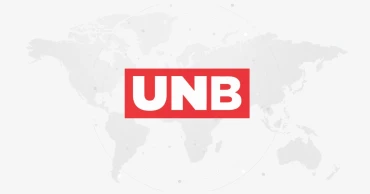Shamsul Alam
Economy has unease, but no crisis: Shamsul Alam
State minister for planning Shamsul Alam on Sunday said Bangladesh’s economy has discomfort, but there is no crisis yet.
Denying a section of economists' assumptions, he said the economy is on the right track; growth, production, and supply lines are working positively, while the government is trying to ease inflation by policy measures.
Alam said this at a discussion meeting on ‘New challenges in the economy of Bangladesh’ organized by the Economic Reporters’ Forum (ERF) at its auditorium in the capital on Sunday.
Chief Economist, Bangladesh Bank Md Habibur Rahman, Ahsan H. Mansur, Executive Director, Policy Research Institute (PRI), Mohammad Hatem, Executive President of BKMEA, Barrister Nihad Kabir, , Chairperson, Business Initiative Leading Development (BUILD), Abul Kashem Khan, director FBCCI, among other spoke at the event.
Also read: No reason to worry; Bangladesh's economy on right track: Shamsul Alam
ERF president Sharmeen Rinvy presided the discussion meeting while its secretary general, SM Rashidul Islam, moderated the program.
The state minister also said some Bangladeshi economists were wrong in predicting that over 5 lakh people may die from Covid-19 pandemic unless a full lockdown was imposed across the country.
Despite this warning, the prime minister decided to keep open the factories, resulting in Bangladesh standing in the1st position in South Asia and 15th in the world in economic growth. If the government implemented a full lockdown in the factories, the economy of the country would have been in trouble, he said.
Import is declining, remittance, export and industrial growth are expanding in the country, defying the warning of a disaster of these sectors by the domestic economists, Dr Alam said.
The state minister said around 10 lakh workers went to different countries till June 2022. Ane despite huge imports, forex reserves still remained over USD $ 41 billion, so there is nothing to be worried about the economy.
BB chief economist Habibur said Bangladesh macroeconomics situation is under a little stress due to external effects, which are becoming stable by policy measures of the central bank.
The central bank will not increase the interest rate rather policy rate increases to make money management smooth, he said.
Also read: Economy needs transitional policy to overcome the crisis: Debapriya
Meanwhile, the BB announced around Tk 1.0 lakh crore special loan packages for CMSMEs, SMEs, Agriculture and other specialized sectors to increase money flow in the market, said Dr Habibur.
He also assumed that exchange rate will back in stable position and then inflation rate will also become tolerable as it created for external effect, he said.
Ahsan Mansur said that another blow from the global recession will hit the domestic economy besides Russia-Ukraine war.
He suggested massive reform of the tax system including tax policies and strengthen domestic gas-coal extraction to make vibrant the domestic economy from the external effect.
Mohammad Hatem said huge tax burden is a barrier to growing business here it is not cooperative al all for Bangladesh entrepreneurs to compete with the global market.
If business grows, the revenue generation would grow, so government policy should aim to help business grow more. 0therwise pushing higher tax will hurt business, he pointed out.
He emphasized on uninterrupted energy supply in the knitwear sector for smooth production of export goods. If it does not happen, the fabrics import demand will increase which is not good for the economy.
Nihad Kabir said the government should act as facilitator, not regulator everywhere.
In case of raw materials for the pharmaceutical sector, an importer has to collect around 73 types of documents from Union Parishad to relevant ministries which are waste of time, she said.
For lack of automation a business requires around 35 types of documents to start and that is not business friendly at all. To create entrepreneurs, the government should reform policy, withdraw trade license requirements, make the easy business process to create young entrepreneurs, Nihad suggested.
3 years ago
No reason to worry; Bangladesh's economy on right track: Shamsul Alam
The whole world is now facing economic stress, inflation, fuel price hikes and supply chain disruptions and Bangladesh is not an exception, State Minister for Planning Shamsul Alam said Sunday.
"Facts and figures show that Bangladesh's economy is on the right track and there is no reason to panic," he added.
Shamsul Alam was speaking at the seminar "Bi-annual Economic State and Future Outlook of Bangladesh Economy: Private Sector Perspective" organised by the Dhaka Chamber of Commerce and Industry (DCCI).
Bangladesh's manufacturing sector saw a 23 percent growth in the last fiscal year, the state minister said.
"Last year Bangladesh sent about one million workers abroad and its positive impact on remittance inflow will be visible soon. Also, the full automation of the taxation system will reduce harassment as well as boost revenue," he added.
Read: Bachelet assures UN’s continued efforts to ensure safe Rohingyas to Myanmar
Shafiul Islam Mohiuddin, member of parliament and also a former president of the Federation of Bangladesh Chambers of Commerce and Industries, said despite global economic volatility, Bangladesh's reserve is adequate to cover import bills for the next five and half months. "And the ongoing crisis is temporary."
Bangladesh Bank Chief Economist Habibur Rahman said they always consider the best balancing of policy guidelines to control the money circulation in the market.
"We are also thinking of options for currency swap with a few countries like India and China," he added.
Mohammad Hatem, executive president of the Bangladesh Knitwear Manufacturers and Exporters Association (BKMEA), said the government needs to adjust fuel prices quarterly in line with the global rates.
DCCI President Rizwan Rahman suggested expediting bilateral and multilateral comprehensive economic partnership agreements with selective countries and revising the import tariff structure.
He also called for ensuring a flexible interest rate regime to reduce inflationary pressure and stabilise forex reserves.
3 years ago


